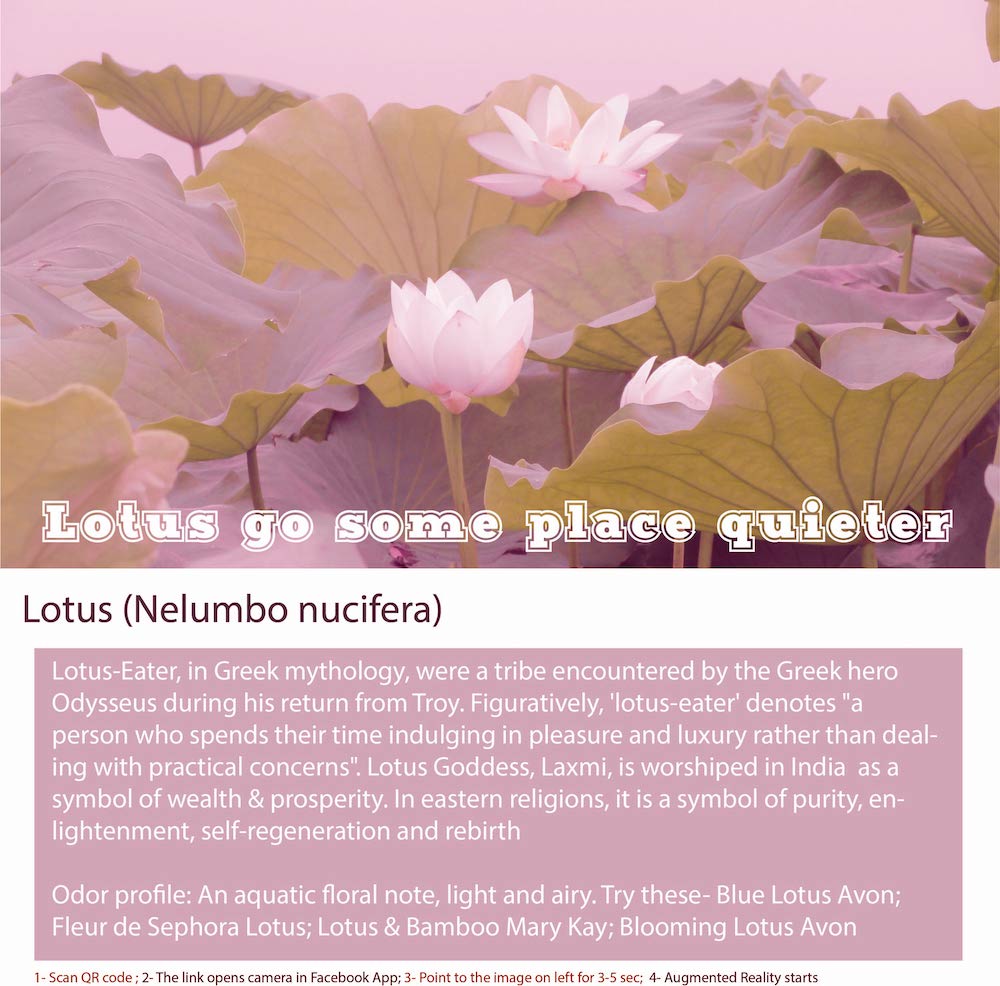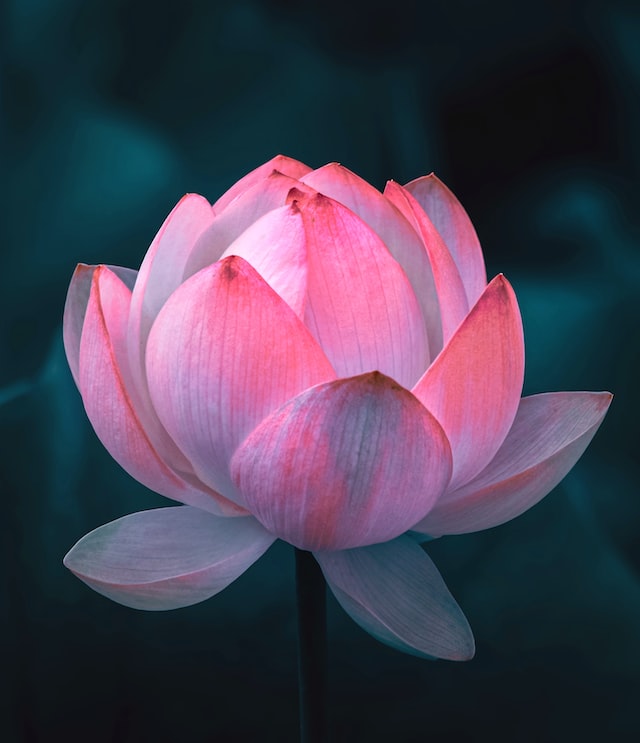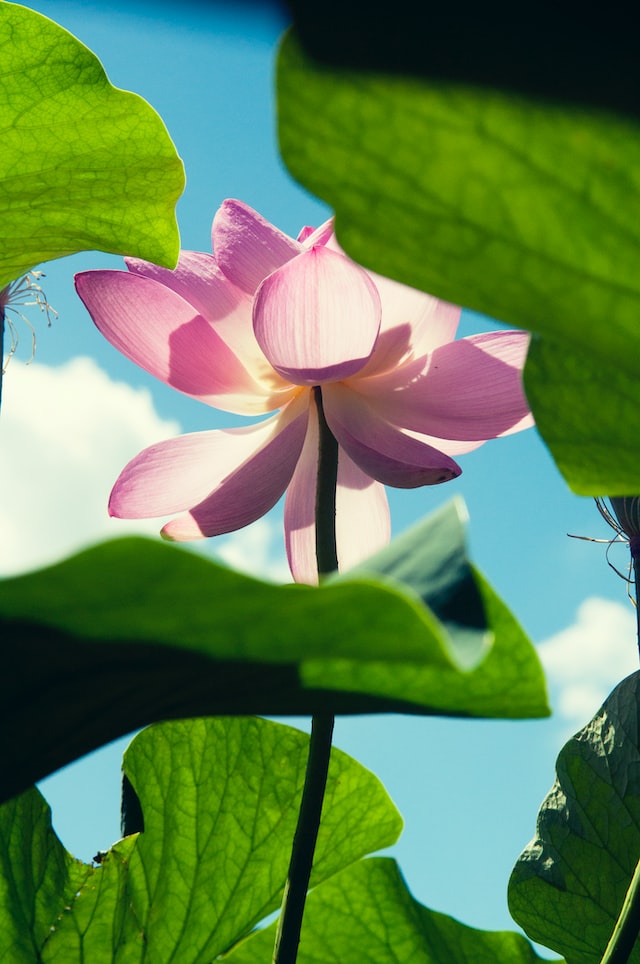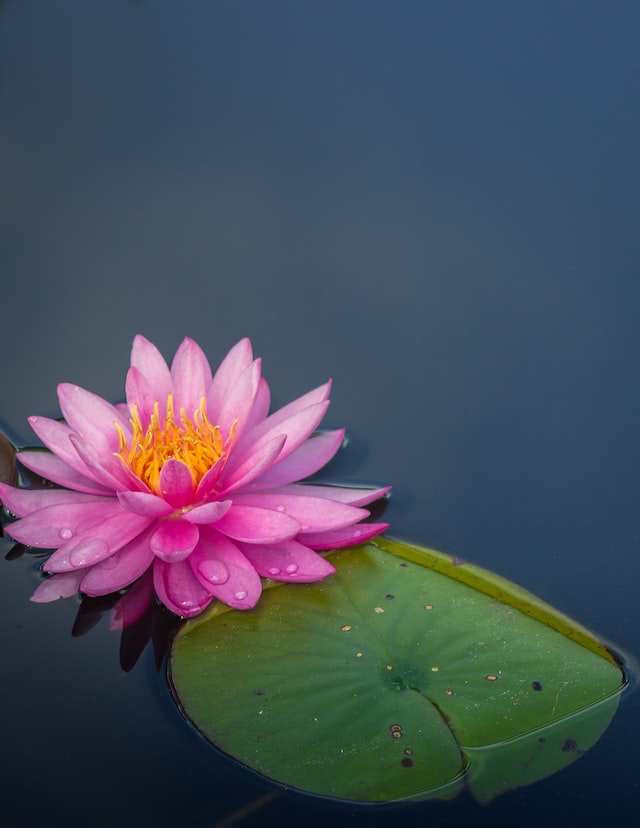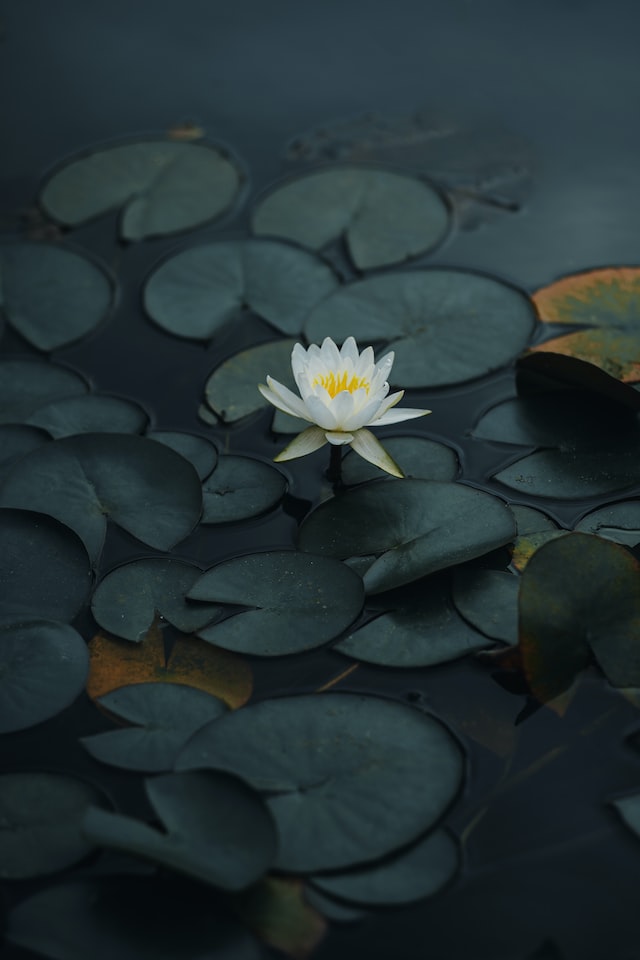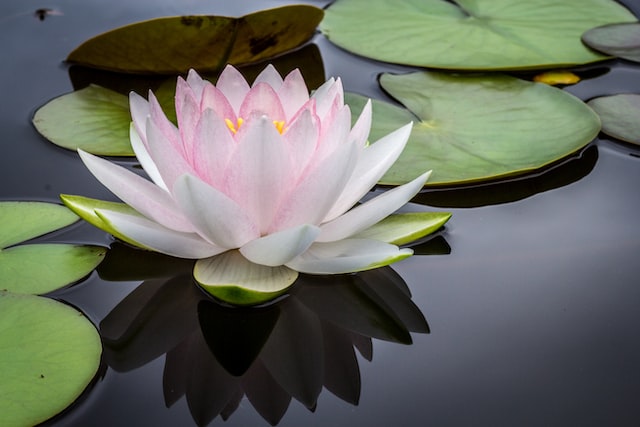Experience the Delicate Aroma of Lotus Soft Floral Essential Oil
Lotus: The Sacred Flower of Beauty, Healing, and Mysticism
Introduction: The lotus, with its exquisite beauty and profound symbolism, is a cherished flower that holds great significance in various cultures and traditions worldwide. Revered for its purity and resilience, the lotus has inspired perfumers, aromatherapists, and culinary enthusiasts alike. Its therapeutic oils offer healing properties, while its versatile nature makes it an occasional ingredient in culinary creations. Moreover, lotus' rich history in medicinal systems and its intriguing fun facts add to its mystique. This essay explores the captivating world of the lotus, encompassing its presence in perfumes, therapeutic oils, food, medicine, and uncovering some fascinating and fun facts about this sacred flower.
Historical and Cultural Significance: The lotus has a deep-rooted historical significance in various cultures and religions. In ancient Egyptian mythology, it was associated with the sun and rebirth. In Hindu and Buddhist traditions, the lotus symbolizes spiritual enlightenment, purity, and transcendence. The flower's ability to emerge gracefully from murky waters has led to its association with transformation and overcoming obstacles. In art and literature, the lotus is often depicted as a symbol of beauty, harmony, and inner growth.
Perfumes and Fragrance: The ethereal fragrance of lotus has intrigued perfumers for years. Although lotus essential oil is not as common as other floral oils, synthetic compounds are used to recreate its delicate scent. Lotus is often used as a middle note in perfumes, adding a sense of purity and tranquility to fragrance compositions. Its captivating aroma evokes a sense of serenity and spirituality, making it a sought-after ingredient in some high-end and niche perfumes.
Therapeutic Oils and Aromatherapy: Lotus essential oil is valued in aromatherapy for its potential therapeutic benefits. Its calming and grounding aroma is believed to promote relaxation, reduce stress, and encourage a sense of balance. In spiritual practices, the scent of lotus is often used to enhance meditation and create a serene atmosphere. The essential oil also possesses potential anti-inflammatory and antioxidant properties, making it beneficial for skincare and well-being.
Culinary Delights: The lotus plant offers various edible parts that are used in culinary creations. Lotus roots, known for their crunchy texture and mild taste, are used in Asian cuisines in soups, stir-fries, and salads. Lotus seeds, often dried or canned, are used in desserts, confections, and savory dishes. In some cultures, the petals of the lotus flower are used to infuse dishes and beverages with a delicate and floral aroma.
Medicinal Applications: In traditional medicine systems like Ayurveda and Traditional Chinese Medicine (TCM), lotus has been used for its potential health benefits. The lotus root is considered cooling and beneficial for the digestive system. Lotus leaves are believed to have astringent and diuretic properties, making them useful in addressing digestive and urinary issues. Additionally, various parts of the lotus plant have been used in herbal remedies to promote relaxation and alleviate stress.
Fun and Crazy Facts:
The lotus, with its profound symbolism and multifaceted qualities, remains an enchanting flower that continues to inspire and captivate humanity. From its presence in perfumes and therapeutic oils to its occasional use in culinary creations, the lotus embodies beauty, healing, and mysticism. Revered across cultures and time, the lotus reminds us of our potential for growth and transformation, even in challenging circumstances. As we admire the lotus' delicate beauty and powerful symbolism, we are reminded of the enduring allure of nature and the timeless wisdom it imparts.
Introduction: The lotus, with its exquisite beauty and profound symbolism, is a cherished flower that holds great significance in various cultures and traditions worldwide. Revered for its purity and resilience, the lotus has inspired perfumers, aromatherapists, and culinary enthusiasts alike. Its therapeutic oils offer healing properties, while its versatile nature makes it an occasional ingredient in culinary creations. Moreover, lotus' rich history in medicinal systems and its intriguing fun facts add to its mystique. This essay explores the captivating world of the lotus, encompassing its presence in perfumes, therapeutic oils, food, medicine, and uncovering some fascinating and fun facts about this sacred flower.
Historical and Cultural Significance: The lotus has a deep-rooted historical significance in various cultures and religions. In ancient Egyptian mythology, it was associated with the sun and rebirth. In Hindu and Buddhist traditions, the lotus symbolizes spiritual enlightenment, purity, and transcendence. The flower's ability to emerge gracefully from murky waters has led to its association with transformation and overcoming obstacles. In art and literature, the lotus is often depicted as a symbol of beauty, harmony, and inner growth.
Perfumes and Fragrance: The ethereal fragrance of lotus has intrigued perfumers for years. Although lotus essential oil is not as common as other floral oils, synthetic compounds are used to recreate its delicate scent. Lotus is often used as a middle note in perfumes, adding a sense of purity and tranquility to fragrance compositions. Its captivating aroma evokes a sense of serenity and spirituality, making it a sought-after ingredient in some high-end and niche perfumes.
Therapeutic Oils and Aromatherapy: Lotus essential oil is valued in aromatherapy for its potential therapeutic benefits. Its calming and grounding aroma is believed to promote relaxation, reduce stress, and encourage a sense of balance. In spiritual practices, the scent of lotus is often used to enhance meditation and create a serene atmosphere. The essential oil also possesses potential anti-inflammatory and antioxidant properties, making it beneficial for skincare and well-being.
Culinary Delights: The lotus plant offers various edible parts that are used in culinary creations. Lotus roots, known for their crunchy texture and mild taste, are used in Asian cuisines in soups, stir-fries, and salads. Lotus seeds, often dried or canned, are used in desserts, confections, and savory dishes. In some cultures, the petals of the lotus flower are used to infuse dishes and beverages with a delicate and floral aroma.
Medicinal Applications: In traditional medicine systems like Ayurveda and Traditional Chinese Medicine (TCM), lotus has been used for its potential health benefits. The lotus root is considered cooling and beneficial for the digestive system. Lotus leaves are believed to have astringent and diuretic properties, making them useful in addressing digestive and urinary issues. Additionally, various parts of the lotus plant have been used in herbal remedies to promote relaxation and alleviate stress.
Fun and Crazy Facts:
- Adaptive Roots: Lotus roots are remarkable for their adaptability. They can grow in muddy waters, extracting oxygen from the air, and store nutrients in their tubers to survive harsh conditions.
- Ancient Plant: The lotus is one of the oldest known plants, with fossil evidence suggesting that it has existed for millions of years.
- Sacred Symbol in Art: The lotus is a prominent motif in ancient and contemporary art across Asia. It often appears in paintings, sculptures, and architecture as a symbol of purity and spiritual awakening.
- National Flower: The lotus is the national flower of India and Vietnam, symbolizing purity, enlightenment, and national pride.
- Lotus in Literature: The lotus is frequently referenced in literature, poetry, and sacred texts, symbolizing purity, growth, and spiritual transcendence.
The lotus, with its profound symbolism and multifaceted qualities, remains an enchanting flower that continues to inspire and captivate humanity. From its presence in perfumes and therapeutic oils to its occasional use in culinary creations, the lotus embodies beauty, healing, and mysticism. Revered across cultures and time, the lotus reminds us of our potential for growth and transformation, even in challenging circumstances. As we admire the lotus' delicate beauty and powerful symbolism, we are reminded of the enduring allure of nature and the timeless wisdom it imparts.
To experience augmented reality, please open the Facebook-app using QR code and point to the image below
Pure Aromatherapy Delight for Relaxation
The Lotus is a type of flower that is known for its beauty and symbolic meaning in many cultures. It is often associated with purity, enlightenment, and spiritual awakening. The lotus flower is also a common motif in art and literature, and is often used in spiritual and religious practices. The lotus is also a genus of aquatic plants, there are several different species of lotus, including the sacred lotus (Nelumbo nucifera) and the American lotus (Nelumbo lutea).
Lotus fun facts:
- The lotus is a symbol of purity, enlightenment, and self-regeneration in Buddhism and Hinduism.
- The lotus is the national flower of India and Vietnam.
- The lotus flower is considered to be sacred in many cultures and is often used in religious and spiritual practices.
- The lotus has been cultivated for thousands of years for its edible seeds and roots, as well as for its medicinal properties.
- The lotus has the ability to grow in muddy water, but still remains clean and untouched by the impurities of the water. This is why it is often used as a symbol of mental and spiritual purity.
- The lotus leaves have a natural water-repellent property, known as the Lotus effect, which has been studied for potential use in self-cleaning and anti-fouling applications.
- The lotus flowers are used in many traditional dishes and confections in China, Japan, and other Asian countries.
- The lotus is also the symbol of the car company Lotus Cars.
- Lotus plants can be grown in a pond, in a container with a water garden setup, or even indoors as a houseplant.
Natural Wellness with Lotus Essential Oil
The lotus has a significant role in mythology and religious traditions of many cultures.
- In Hinduism, the lotus is associated with the god Brahma, who is said to have been born from a lotus that emerged from the navel of the god Vishnu. The goddess Lakshmi, the goddess of wealth and prosperity, is also often depicted sitting on a lotus.
- In Buddhism, the lotus is a symbol of enlightenment and spiritual awakening. The Buddha is often depicted sitting on a lotus flower or holding a lotus in his hand, representing his spiritual purity and detachment from the material world.
- In ancient Egyptian mythology, the lotus is associated with the sun god Ra and the creation of the world. The flower was believed to close at night and open in the morning, symbolizing the daily rebirth of the sun.
- In Chinese mythology, the lotus is a symbol of purity and perfection. It is also associated with the Chinese goddess of the underworld, known as the White Tiger, who is often depicted sitting on a lotus throne.
- In Japan, the lotus is a symbol of spiritual awakening and enlightenment, and is often associated with the bodhisattva Kannon, who is said to have the power to grant wishes and help people achieve enlightenment.
Scentopia Singapore: Your Source for Aromatherapy Products
The lotus flower is known for its delicate and sweet scent. The scent of the lotus flower is often described as having a light and fresh aroma, with hints of floral and fruity notes. The scent is most pronounced during the day, when the petals are fully open, and is less noticeable in the evening.
The scent of the lotus is also used in perfumes, aromatherapy and incense. In perfumes, the lotus scent is often used as a top or middle note, giving the fragrance a light and fresh aroma. In aromatherapy, the lotus scent is believed to have a calming and soothing effect, helping to reduce stress and promote relaxation. The lotus scent is also used in incense, where it is believed to have a purifying effect on the mind and spirit.
In addition, lotus oil is extracted from the petals and seeds of the lotus plant, which has a unique and pleasant aroma, it is used in the cosmetic industry and perfumery, also in the food and beverage industry as a natural flavor.
It is worth mentioning that the scent of lotus can vary depending on the species, the time of day, and the maturity of the flower, as well as the specific growing conditions of the plant.
The scent of the lotus is also used in perfumes, aromatherapy and incense. In perfumes, the lotus scent is often used as a top or middle note, giving the fragrance a light and fresh aroma. In aromatherapy, the lotus scent is believed to have a calming and soothing effect, helping to reduce stress and promote relaxation. The lotus scent is also used in incense, where it is believed to have a purifying effect on the mind and spirit.
In addition, lotus oil is extracted from the petals and seeds of the lotus plant, which has a unique and pleasant aroma, it is used in the cosmetic industry and perfumery, also in the food and beverage industry as a natural flavor.
It is worth mentioning that the scent of lotus can vary depending on the species, the time of day, and the maturity of the flower, as well as the specific growing conditions of the plant.
Explore the Range of Scentopia Singapore's Essential Oils
Lotus is a popular scent in the fragrance industry and is featured in many perfumes and colognes. Some famous brand perfumes that include lotus as a key ingredient include:
- Jo Malone Peony & Blush Suede: This scent features a blend of peony and suede, with a hint of lotus flower for a fresh and floral aroma.
- Estée Lauder Beautiful: This classic scent features a blend of rose, lily, and lotus, for a fresh and floral aroma.
- Jo Malone Lotus Blossom & Water Lily: This scent features a blend of lotus blossom and water lily, for a fresh and aquatic aroma.
- Burberry Her: This scent features a blend of jasmine, rose, and lotus, for a fresh and floral aroma.
- Calvin Klein CK One: This iconic scent features a blend of lotus, pineapple, and papaya, for a fresh and fruity aroma.
- Elizabeth Taylor White Diamonds: This classic scent features a blend of lily, rose, and lotus, for a fresh and floral aroma.
- Gucci Bloom: This scent features a blend of jasmine and tuberose, with a hint of lotus for a fresh and floral aroma.
- Tom Ford White Patchouli: This scent features a blend of patchouli, white peony, and lotus, for a fresh and floral aroma.
Join Scentopia, Sentosa's latest tourist attraction wonderful orchid scent crafting, fragrance tour, bridal shower or corporate team building which includes perfume making onsite and offsite, beach activities and more. We also serve primary school learning journey, secondary students and pupil on industrial excursions. Know more about our orchids perfume bar or therapeutic orchid scents and other wellness aromas. Conatct Perfume workshop or book a scent crafting session here.

